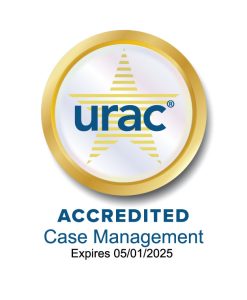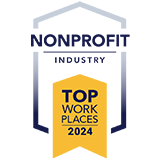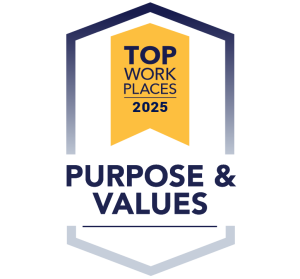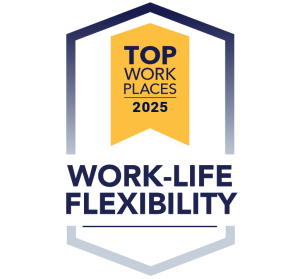By Renee Dain, Sr. VP, Communications and External Affairs
Starting a new school year can be tough, especially for kids who struggle with focus, organization, and learning. But parents, don’t worry! Here are some simple, practical tips to help your child thrive this school year.
1. Establish a Routine
Why it helps: Kids with executive function issues often struggle with time management. A consistent routine can make a big difference.
What to do: Create a morning and evening schedule that’s easy to follow. Include homework time, breaks, and a bedtime routine. Use visual aids like charts or timers to keep things on track.
Q: How can I help my child stay organized throughout the day?
A: Start small. Break down tasks into manageable steps. For example, create a checklist for what needs to go into their backpack each day. You can even color-code folders and notebooks for different subjects to make them easier to find.
2. Break Tasks into Chunks
Why it helps: Big tasks can feel overwhelming for kids with attention and executive function challenges.
What to do: Break homework or chores into smaller pieces. Instead of saying, “Clean your room,” ask them to “Pick up all the books first,” then move on to the next task.
Q: My child loses focus during homework. How can I help?
A: Try using a timer for short bursts of work followed by a break. For example, have them work for 20 minutes, then take a 5-minute break. This technique, known as the Pomodoro method, can help kids stay on task without feeling overwhelmed.
3. Foster Self-Advocacy
Why it helps: As your child grows, they’ll need to advocate for themselves, especially in school settings.
What to do: Teach your child how to ask for help. Practice phrases like “Can you explain that again?” or “I didn’t understand the homework.” Encouraging open communication with teachers can build their confidence and help them get the support they need.
Q: What if my child feels embarrassed about asking for help?
A: Share a story about someone (even yourself!) who asked for help and how it made things easier. Remind them that everyone needs help sometimes, and it’s a sign of strength, not weakness.
4. Individualized Education Program (IEP) Meeting
If your child needs an IEP or the current IEP does not appear to be meeting your child’s needs in the new school year, make sure to schedule it as soon as possible. This is especially important for children transitioning from one school to another as it will alleviate gaps in school-based services/supports.
Conclusion:
These tips can make a big difference for kids with learning challenges. Remember, small changes can have a big impact. Be patient and celebrate the wins—no matter how small!
For additional resources check out:
-
Public School Resources:
Maryland public schools offer specialized services and support through Individualized Education Programs (IEPs) and 504 Plans for students with executive function deficits, ADHD, and learning disabilities. Contact your school or the Maryland State Department of Education (MSDE) for more information. Website: MSDE -
Private Clinics and Specialists: Many private clinics in Maryland specialize in treating children with ADHD, executive function deficits, and learning challenges.
Kennedy Krieger Institute (Baltimore): A renowned facility for children with developmental and learning challenges. They offer a variety of diagnostic and treatment services, including executive function support, ADHD treatment, and learning assessments. Website: Kennedy Krieger Institute
The Neuropsychology Clinic at Johns Hopkins: Offers assessments and therapy for children with attention, learning, and executive function difficulties. Website: Johns Hopkins Center for Behavioral Health
The Chesapeake ADHD Center (Silver Spring and Annapolis): Specializes in ADHD and executive function coaching for children, teens, and adults. They provide comprehensive evaluations and therapeutic support. Website: Chesapeake Center
-
Parent Advocacy and Support Groups: Maryland offers various organizations where parents can seek guidance, advocacy, and peer support.
Parents’ Place of Maryland: A nonprofit organization that provides parents with resources, support, and information for children with disabilities and special health care needs. Website: Parents’ Place of Maryland
CHADD (Children and Adults with Attention-Deficit/Hyperactivity Disorder) – Maryland Chapters: Provides information, support and advocacy for children and adults living with ADHD. Website: CHADD Maryland
Pathfinders for Autism: Pathfinders for Autism works to support and improve the lives of individuals with autism through expansive, customized programming, and by providing resources, training, information and activities free of charge. Website: Pathfinders for Autism
The Arc Maryland: Nonprofit dedicated to the rights and quality of life of persons living with intellectual and developmental disabilities and their families. They provide public policy, advocacy, public awareness, and training and membership support. Website: The Arc Maryland
-
Online Resources: Several national organizations have Maryland-specific resources or chapters to provide help.
LDOnline: A resource for learning disabilities and ADHD, providing articles, tips, and guidance for both parents and educators. Website: LDOnline Maryland
Understood.org: A popular online resource for parents of children with ADHD, learning disabilities, and executive functioning challenges. Website: Understood







